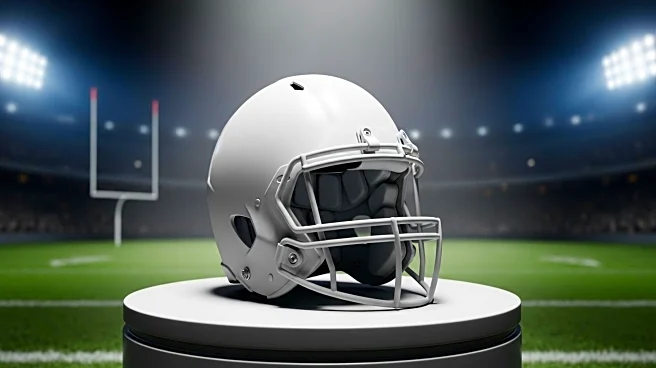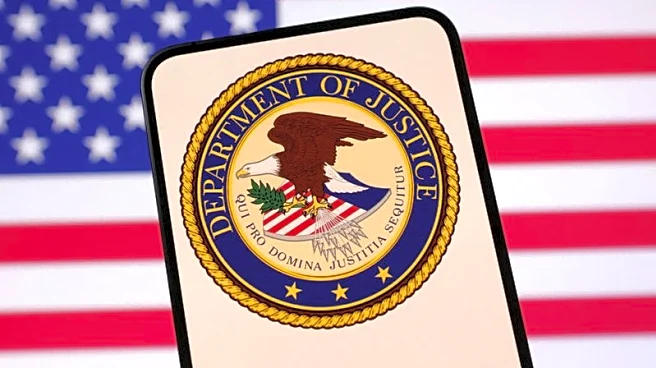What's Happening?
Nico Iamaleava, who recently transferred from Tennessee to UCLA, made his debut as the Bruins' quarterback in a game against Utah. The match ended in a 43-10 defeat for UCLA, highlighting significant challenges for Iamaleava and the team. Iamaleava was sacked four times and completed 11 of 22 passes for 136 yards, with one touchdown and one interception. Despite being UCLA's leading rusher with 47 yards, Iamaleava struggled with accuracy, often overthrowing receivers and making poor reads. The Bruins' defense also faced difficulties, allowing Utah to gain 493 yards and convert 14 of 16 third downs. The game underscored the need for improved offensive line protection and overall team performance under second-year coach DeShaun Foster.
Why It's Important?
Iamaleava's debut is significant as it marks a pivotal moment in his college career following a controversial transfer from Tennessee, reportedly over NIL income disputes. His performance is crucial for UCLA, which is seeking to establish competitiveness under coach DeShaun Foster. The loss to Utah raises questions about the team's readiness and Foster's leadership, especially after taking over from Chip Kelly. The outcome of this game could influence future decisions regarding team strategy and player development, impacting UCLA's standing in college football.
What's Next?
UCLA will need to address its offensive line issues to better protect Iamaleava and improve overall team performance. Coach Foster may face increased scrutiny and pressure to deliver results in upcoming games. Iamaleava's future performances will be closely watched to see if he can overcome the challenges faced in his debut and shift the narrative surrounding his transfer. The team will likely focus on enhancing their defensive strategies to prevent opponents from exploiting weaknesses seen in the Utah game.
Beyond the Headlines
Iamaleava's transfer and debut highlight broader issues in college sports, such as the impact of NIL agreements on player decisions and team dynamics. The controversy surrounding his transfer underscores the growing influence of financial considerations in college athletics. This situation may prompt discussions on the ethical implications of NIL deals and their effect on traditional college sports values.











